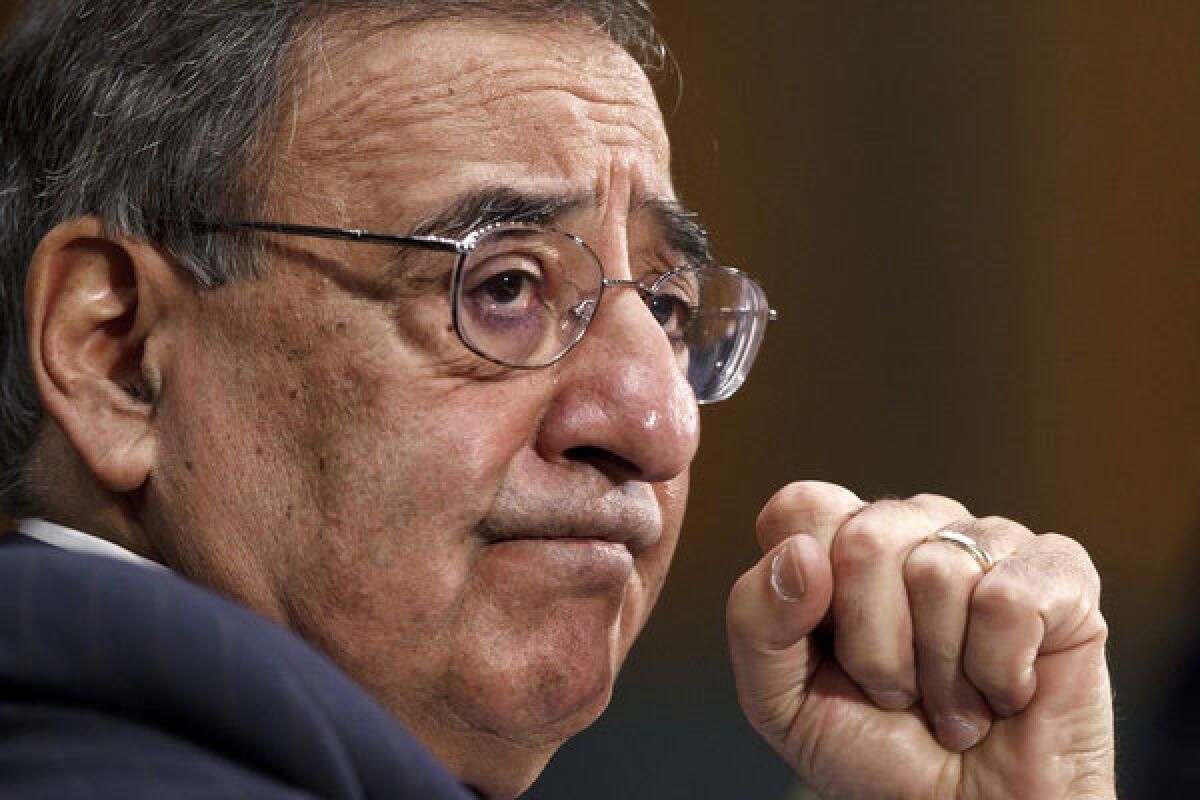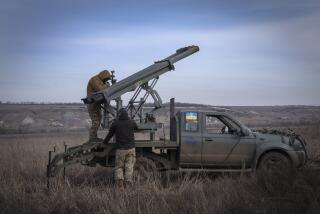Pentagon reshapes spy service

WASHINGTON— The Pentagon will reorganize its spy service to target national security threats around the globe after a decade of focusing chiefly on the wars in Iraq and Afghanistan, a senior defense official said Monday.
The official said several hundred case officers and analysts at the Pentagon’s Defense Intelligence Agency would be shifted to the new Defense Clandestine Service.
The fledgling service is supposed to work closely with CIA officers based at U.S. embassies overseas to collect and distribute intelligence on foreign terrorist networks, nuclear proliferation and other difficult targets, the official said.
The initiative, which Defense SecretaryLeon E. Panettaapproved last week, aims to boost the Pentagon’s role in recruiting and running spies, a mission the CIA has dominated for decades, as well as put more military case officers and analysts in trouble spots.
The defense official, who described the plan in exchange for anonymity, said the new spy service was expected to grow “from several hundred to several more hundred” officers in coming years.
“You have to do global coverage,” the official said.
Some of the new spies are likely to be assigned to targets that are intelligence priorities, including parts of Africa and the Middle East where Al Qaeda and its affiliates are active, the nuclear and missile programs in North Korea and Iran, andChina’sexpanding military.
The CIA, a civilian agency, and the DIA, a combat support and intelligence agency, long have clashed over their respective roles and responsibilities. But U.S. militaryand intelligence missions have increasingly merged in counter-terrorism operations since 2001, from the raid on Osama bin Laden’s compound in Pakistan to drone strikes in Yemen.
It’s not clear whether the DIA’s new spy service will overlap with the CIA’s National Clandestine Service, or serve as an adjunct to it.
“I’m not sure what they are supposed to achieve that the CIA doesn’t,” said Joshua Foust, a former DIA analyst on the Middle East. “This seems like a territorial thing. ‘Hey, the CIA has this, why don’t we have it too?’…I’m pretty skeptical that it’s necessary or good.”
The change has been in the works since a classified study last year by the Office of the Director of National Intelligence, which oversees all 16 U.S. intelligence agencies, concluded that the military needed better human intelligence-gathering.
The Pentagon is not seeking extra money or manpower. At least for now, DIA personnel will be shifted to focus on new priorities “as we look to come out of war zones and anticipate the requirements over the next several years,” the defense official said.
The realignment comes as a new DIA chief takes over. Army Lt. Gen. Michael T. Flynn, who has extensive experience in special operations and now serves as assistant director of national intelligence, is known as an iconoclast in the intelligence community.
While heading military intelligence in Afghanistan, Flynn wrote an influential paper in January 2010 for a Washington think tank that sharply criticized how intelligence was collected and used. He faulted the DIA and other agencies for focusing too much on tactical threats and for ignoring politics and demographics of the war.
“Eight years into the war in Afghanistan, the U.S. intelligence community is only marginally relevant to the overall strategy,” Flynn wrote. “The vast intelligence apparatus is unable to answer fundamental questions about the environment in which U.S. and allied forces operate and the people they seek to persuade.”
Ken Dilanian in the Washington bureau contributed to this report.
More to Read
Start your day right
Sign up for Essential California for news, features and recommendations from the L.A. Times and beyond in your inbox six days a week.
You may occasionally receive promotional content from the Los Angeles Times.







